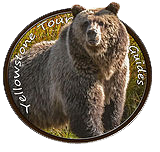What to Bring Backpacking in Yellowstone (Checklist)
there are several tricks towards staying warm and dry
It is important to have the right gear, lightweight gear and to be prepared for any weather at any time of year in Yellowstone. We can see snow any month of the year, but most days the highs are in the 60’s and 70’s with lows in the 30’s and 40’s. Afternoon thunderstorms are common. We have been out in the worst of Yellowstone’s weather, and there are several tricks towards staying warm and dry. Please follow the list below, and you will have a great experience regardless of the weather.
avoid bringing extra gadgets
comfortable backpacking shoes or boots
Also you will want to avoid bringing extra gadgets, and anything that leads to extra weight. Also consider how bulky the item is, if it takes up a lot of space, you may not want to bring it. Make sure you have comfortable backpacking shoes or boots that are broken in prior to your trek. We do not recommend any cotton or down. Synthetics/ Nylons, wool etc.
What to Bring
Clothing should be loose fitting & lightweight
- A light pair of binoculars for wildlife viewing (optional)
- A small lightweight camera with an extra set of batteries.
- Toilet Paper and personal items in a large plastic zip lock bag. All items should be unscented, biodegradable and environmentally safe for the backcountry. Personal items include lip balm, sun screen hand sanitizer (small) or wipes and bug spray (not needed in September or October). Remember to keep items as small as possible.
- 2 pairs each of smart wool thin and thick socks; we recommend the small gators to keep rocks, grass, etc. out of your shoes.
- 2 T-shirts
- We recommend a lightweight pair of pants, that zip off into shorts, this can save you weight. If not 1 pair of pants (blue jeans and other heavy pants are not recommended). Bring one pair of shorts if you don’t have the pants/shorts combo)
- 1 sun hat or bandana.
- 1 stocking or ski hat
- 1 pair of Sandals, water shoes or Crocs for fords and camp. Crocs are the lightest.
- 1 lightweight nylon rain suit/ pants and zip able top. Ponchos will not work if we get some extreme weather.
- 1 warm synthetic filled or fleece jacket
- 1 pair of gloves
- 1 warm wool or fleece shirt
- 1 set of long underwear (once again, no cotton) top and bottoms.
- 1 small washcloth
- 2 garbage bags
- 1 lightweight headlamp with fresh batteries.
- 1 (or 2) 1 quart water bottles
- Lighter (or matches)
- Any personal medications you may need, including prescriptions, aspirin, ibuprofen, etc., in a small zip lock bag.
- Lib balm (unscented if possible)
- Insect repellent and/ or head net. We do try to keep you out of the buggy areas as much as possible, but trips in May, June and July are likely to see mosquitoes, ect. As the summer wears on, most of the bugs will be done by late August (you may want to bring it just in case and decide before you hit the trail).
- Unscented sunscreen
- Eye glasses/ sunglasses with lightweight protective cases and cleaning cloths: (Do not bring contacts.)
- A positive attitude, we are heading to one of the last great wilderness areas left in the Lower 48. Regardless of the weather, you will get to experience some incredible sites. For those bringing their own gear will need a backpack, day pack, trekking poles, Utensils (cup, bowl, spoon/ fork), sleeping bag, pad, tent, rain cover.
Here is a quick list of what Not To Bring:
Book With Us Now
- Any cotton/ blue jeans (other than a t shirt for sun protection). Cotton can be quite heavy and bulky. Think about how heavy each clothes item is when taking it out of the washing machine, then think about packing that item wet if it were to get wet on the trip.
- Electronics, games, phones, radios, ect. All of this is extra weight and unnecessary.
- Firearms. Firearms are prohibited on any Yellowstone Tour Guides trip. Bear spray is provided for participants over 13 years of age.
- Contact lenses. Contacts dry out easily and easily become lost in the backcountry
- Anything that is not on the list above, if it’s not needed, it’s extra weight.
